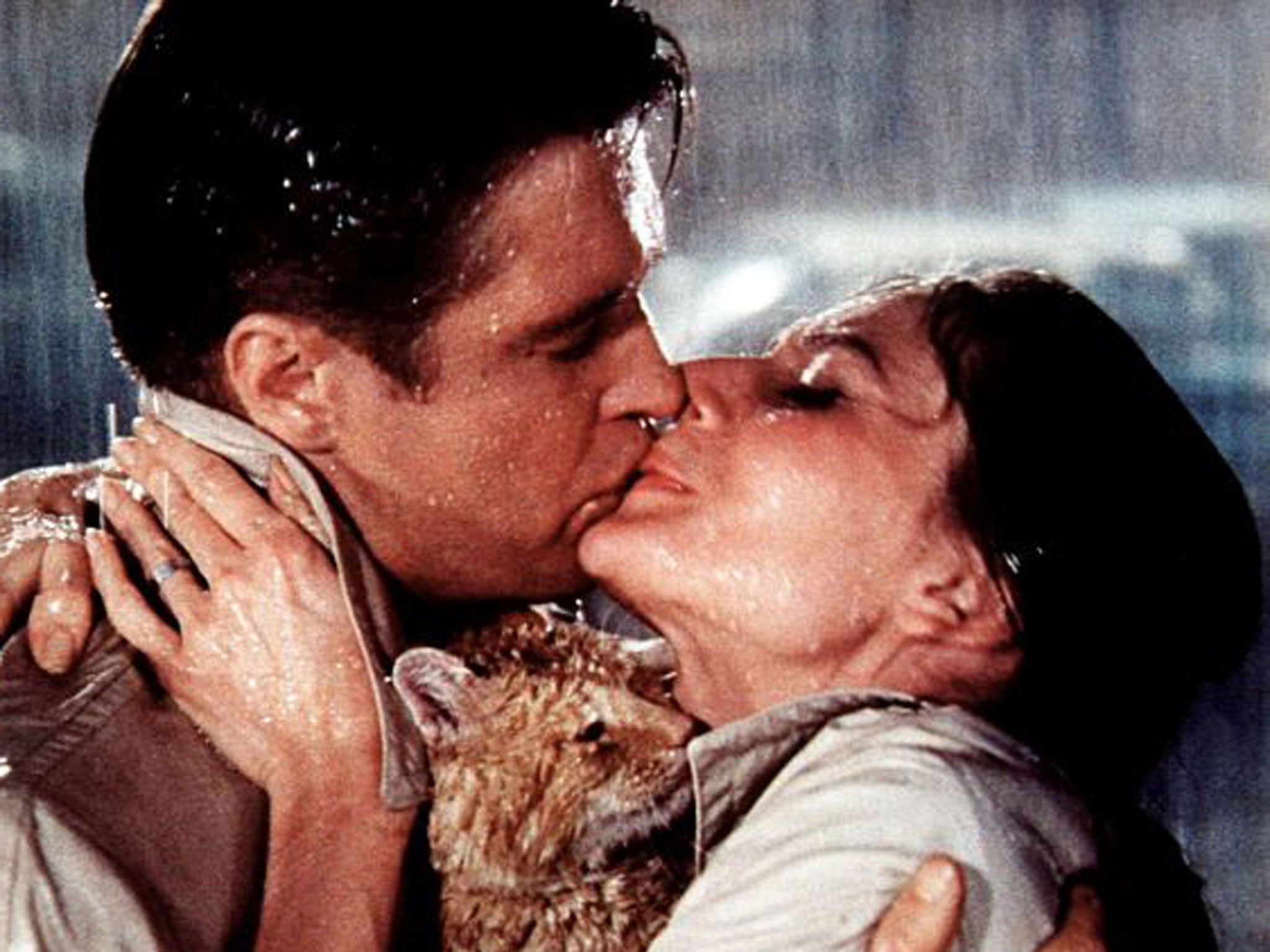What happens when people stop kissing?
For lovers, it's the first moment of physical intimacy. But why do long-term partners lock lips so much less? Rebecca Hardy investigates

Two strangers face each other. They gaze into each other's eyes. There's that slight moment of awkwardness; coyness. Then they move towards each other slowly and lock lips.
What happens when two strangers kiss? This was the question the film-maker Tatia Pilieva attempted to find out in her First Kiss video, which went viral this month. But while some questioned the authenticity of the piece – many of the participants were hotter-than-hot models and advertising Wren Studio clothes – I was left with was the heart-warming sense that, underneath, we are still a bunch of softies; that a simple snog can still touch our irascible hearts.
Some studies suggest that many people remember their first kiss better than the first time they had sex. But if you're in a long-term relationship, can you remember your last one? One British Heart Foundation study revealed that 18 per cent of married people don't pucker up with their partner for an entire week, while 40 per cent kiss for just five seconds or less.
A recent Oxford University study suggested that people lock lips to assess their biological compatibility, a theory backed up by Sheril Kirshenbaum, the author of The Science of Kissing. "Research shows that women are most attracted to the scent of men with a very different genetic code for immunity, resulting in stronger, healthier children. A good kiss helps a woman to figure out whether her partner would be a good long-term match." Which begs the question: do long-term couples kiss less because they no longer need to?
According to Andrea Demirjian, the author of Kissing: Everything You Ever Wanted to Know About One of Life's Greatest Pleasures, kissing is packed with health benefits. "The lips have so many nerve endings that once the excitement begins, it fires a flood of signals to the brain. Blood vessels dilate, blood pressure lowers, your heart rate starts pumping and you get into almost a state of relaxation."
Demirjian equates this to the "runner's high" – that heightened state of well-being induced by the "happy chemicals" serotonin and dopamine (associated with craving and desire). "So, on one hand, there's an adrenalin rush, giving you those wonderful flushed feelings, but it also brings down heart rate and blood pressure. The opening blood vessels can help with headaches and cramps and your increased heart rate can even burn calories."
Marcel Danesi's recent book The History of the Kiss! The Birth of Popular Culture traces the history of the romantic kiss, arguing that it was a transgressive act that ultimately created popular culture. "I wanted to find out where the romantic kiss came from. I looked at ancient paintings; it wasn't there. It wasn't until the medieval period that the romantic kiss started to appear."
Dr Valerie Curtis, from the London School of Hygiene and Tropical Medicine and the author of Don't Look, Don't Touch: The Science Behind Revulsion, says that kissing evolved from our basic disgust with each other.
"One of the biggest dangers we faced was not from large predators, but from invisible predators inside: the worms, the scabies, the parasites. So we all have ancestral voices telling us to avoid them. If you see someone walking down a street, they are a seething mass of parasites. You certainly don't want to kiss them. On the other hand, humans are deeply social, so we have to deal with this problem." She says that if we want to be friends with someone, "we have to prove we can get over the disgust. Kissing is the first sign that you are taking a risk".
So what happens when people stop kissing? Is it a sign that they are no longer committed? "Relationship psychology shows that one of the first signs that your marriage is in danger is when the disgust starts to get the upper hand – when you start squirming at his smelly feet or her nasty socks. It is the first sign that you no longer love this person." That said, though, "kissing is a commitment device – a signal to your partner that you are going to stick around". If long-term couples no longer kiss, she says, it may be because they don't have to.
Arizona State University researchers found that married or cohabiting couples instructed to "frequently kiss" reported not only less stress and more relationship satisfaction, but also a decrease in ("bad") cholesterol levels. Compared with the non-necking group, the kissing couples said they exercised more, argued less, had less conflict and understood each other better. Another study showed affectionate couples were more able, physiologically, to handle stressful tests later, and had more oxytocin (the "love hormone" associated with bonding).
A clear sign to carry on kissing, then. "Kissing bridges the spiritual with the body, the body with the soul," Danesi says. "Love, expressed openly and physically, changes people. It can change the world as well."
Join our commenting forum
Join thought-provoking conversations, follow other Independent readers and see their replies
Comments